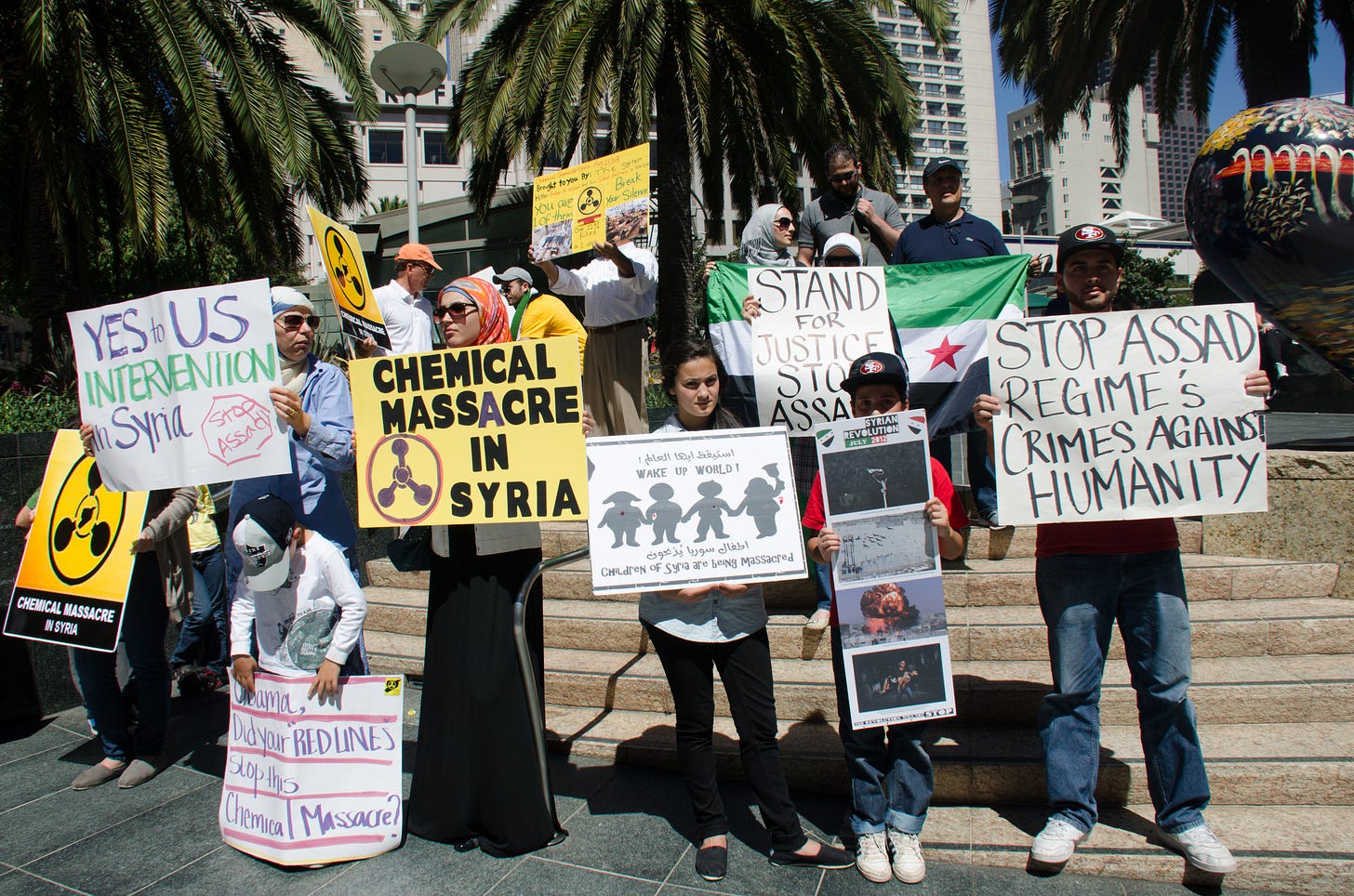Free Syria and the Return of People’s History
What the Fall of the Assad Regime Says About the West’s Strategic Blinkers
Syrian American Rally for Intervention, s. l., September 7, 2013. Photo: Steve Rhodes
The fall of the Assad regime in twelve days and Syria’s liberation from a totalitarian regime that had lasted 54 years are among the exceptional historical events of our time. The reality is that the Syrian people liberated themselves. Turkey may have given the green li…




